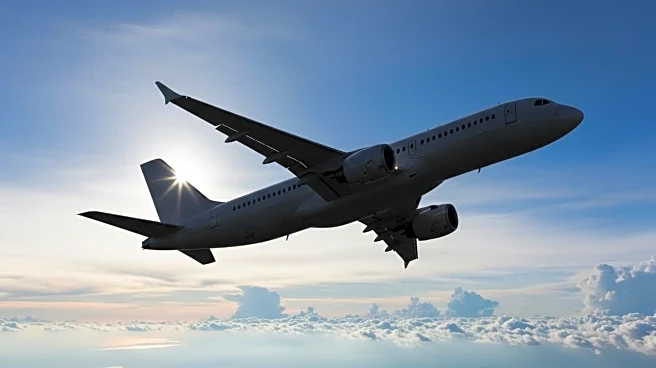What's Happening?
Embraer Commercial Aviation has identified significant potential for improving air connectivity across Africa, which could lead to economic growth and enhanced quality of life. Theo Wensink, head of airline marketing for the Middle East and Africa at Embraer, emphasized this point during the Aviation Africa Summit and Exhibition in Kigali. He shared examples of current connectivity challenges, such as indirect and lengthy journeys between African cities that often require detours through European hubs. Wensink highlighted the importance of opening new routes and increasing flight frequencies to address these issues. He also noted the role of optimizing aircraft size to allow more frequent flights and attract business travelers.
Why It's Important?
Improving air connectivity in Africa could have substantial impacts on the continent's economy and social development. Enhanced connectivity would reduce travel time and costs, making it easier for people and goods to move across the region. This could lead to increased business opportunities, tourism, and access to essential services like healthcare. Airlines and aircraft manufacturers like Embraer stand to benefit from increased demand for flights and aircraft, while African economies could see growth from improved trade and investment. The focus on smaller aircraft for less busy routes could also lead to more efficient and profitable operations.
What's Next?
Efforts to improve air connectivity in Africa may involve strategic partnerships between airlines and governments to open new routes and increase flight frequencies. Airlines might invest in smaller aircraft to optimize route efficiency and profitability. Stakeholders could also explore infrastructure improvements at airports to support increased traffic. As these initiatives progress, there may be increased competition among airlines to capture market share in the region, potentially leading to better services and lower prices for consumers.
Beyond the Headlines
The push for improved air connectivity in Africa also raises questions about environmental impacts, as increased flights could lead to higher CO2 emissions. Balancing economic growth with sustainability will be a key challenge for stakeholders. Additionally, cultural and political factors may influence the pace and success of connectivity improvements, as cross-border cooperation is essential for opening new routes.









